 by KJ Howe
by KJ HoweIn some cases, only a cursory edit is done and then the book is sent on its way. Second edits? I would hazard a guess they are rare. Are the more seasoned editors mentoring the assistant and associate editors? And what are the implications of this if the answer is no? How will the skills be kept alive? I’m sure many of us have heard a friend or peer say proudly that his or her manuscript needed no revisions. Was that truly the case, or was something else involved? And then you hear a complaint about the quality of the fiction…Did anyone EDIT this?? How can they publish this?? Of course too, there are those authors who get their manuscripts back and the rewrites are extensive. This does indeed still happen, perhaps more often than we hear about. There are also agents that still edit and polish prior to submitting a clients’ work. In the past, an agent would hone the project and the editor would dig in to the manuscript after the contract is signed. Nowadays, odds are that isn’t going to happen in quite the same way.
Do editors edit? Yes and no; sometimes/depends.
So what choices do writers have when it comes to the editorial process in an ever-changing publishing landscape?
Some are surely fortunate enough to have found a talented partner or group that helps them hone their craft. They benefit greatly from insights, support and creativity given by other writers who no doubt can share what works and doesn’t work for them. This is a tremendously valuable asset to have and many, many authors have achieved success with this as their base.
And there are those writers who are perfectly content in their office; writing on their own, communicating with few, hitting bestseller lists with their stellar product.
Another writer may have found an agent and yet together, they are unable to move the manuscript in the direction they desire.
But what if you don’t fall squarely into a category? What if you are thinking of self-publishing? This is a popular option these days as so many writers feel what is offered in some cases by a publisher is less than generous, especially for new writers in the mass marketplace. The author then has to go it alone and wear many hats as a result. She must market and publicize at a minimum, by herself. The rise in popularity of freelance editors is a by-product of this new reality. Authors are looking for options and hiring a professional can perhaps give them an edge. Being open to this kind of critical assessment may or may not be for you. But if it does appeal, one should research the editorial services being provided and in my opinion, connect with an editor who has experience editing books similar to your own.
Here is a peek through the window of how I like to approach working with authors…
I am a large canvas editor. I read with two hats on; my reader hat and my editor hat. I use my reactions on both levels to form suggestions for clients. I react as I read and clients can often find scribbles in the margins. I do not censor these comments or try to sugar-coat a reaction if it happens to be negative. I do not believe that it makes sense to wear kid gloves while working for a client. My job is to give the writer an advantage, if I can. My job is to assist the author in getting the manuscript as close to perfect as we can.
Stories need to be great. We’ve all heard this; at workshops, on tape, in critique group. The hook is key. Does it hold, lure to a satisfying ending? When I edit, I don’t follow a formula or have a checklist. I focus on the main characters; are they likeable; are they believable; are the circumstances believable. I have no problem with an old plot with a new twist. I look for pacing. I hate clichés. I hate cop-outs. I focus on tense. I focus a lot on point of view. Are there too many at one time? Is reading like watching a tennis match? Am I with one character enough to get a grasp on that character, or being moved onto someone else too quickly? Conflict is always a big issue for writers and seems to come up a lot in conversation. Does one character have something another character wants? If I am reading a love story, is there an obstacle that needs to be overcome? Does Life throw a believable curve ball at these folks?
Sometimes I do edit toward the market. Is it funny enough? Is it sexy enough? Is the police procedure creative? Is the puzzle hard to solve? Do I feel the jeopardy the character is in? Does the writer know where she/he would like this manuscript to end up? Is there an audience out there that might be the right one? Does the author peruse the shelves in the bookstore? Has the author done his/her homework in this regard?
I am not a proofreader or a copy-editor or a fact-checker. I am not a writer. I do not have books on my desk about style and rules. I have not written self-help books about writing.
A freelance job for me is not a quick thing. It takes time. I try to work at a good pace as I know there is an anxiousness to get results and move forward. But sometimes it just doesn’t work that way. I fly by the seat of my pants a lot. I listen to my immediate reactions a lot, both positive and negative. I think of myself as an author’s editor rather than a company person (so to speak). Editing for me is a truly enjoyable thing. It was always the favorite part about my job when I was in Corporate America. I think of my work as entering into short-term partnerships; helping to create something, making it great and then patting it on the head and sending it on its way.
Book publishing has changed, is changing, from years ago. Editors lugged bulky manuscripts home then; now they carry Kindles. Then we often edited at our desks; now, that probably isn’t encouraged. The Mouse clicks instead of a blue pen. Then, there were budgets for historical romances (albeit minimal!). Now? Not so much. It’s always been about moving the product, in as many quantities as possible. Now, perhaps doing more books with one author is preferred over focusing on many. The New York Times has an E-Book bestseller list; that fascinates me. And surely more changes are coming. We will adapt as we continue on to the next thing…I just hope that those of us who so enjoy working with writers can keep the art of editing (and our blue pens!) alive.
A huge thanks to Caroline for sharing her insights! KJ
Bio: I am a graduate of Skidmore College and hold a BA in English. My publishing career began after college when I went to work for the direct mail-order Book Clubs; The Literary Guild, The Rhapsody Book Club, The Book of the Month Club, etc.
I moved on to Pocket Books, a division of Simon and Schuster, one of the largest publishers of commercial fiction in New York, where I worked for 12+ years, moving up the ranks to the last position I held as their Executive Editor. A number of my authors made appearances on the New York Times, PW and USA TODAY bestseller lists. A large number of the romance writers were RITA nominees and winners and Golden Heart finalists. I acquired brand new talent and worked with authors who penned in different genres. I traveled extensively to RWA conferences, spoke often, and even had my photo in the New York Times!
I have been freelancing for ten years on all genres of popular fiction; including YA, fiction for men, mystery, cop books, literary fiction and of course, romance. I am a stay-at-home mom to two sons who are all boy, all the time and a 95 pound Rhodesian Ridgeback who also happens to be male. I enjoy running on the beach, traveling, fine dining and reading.
I can be reached at thebookeditor4u@optonline.net

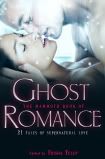
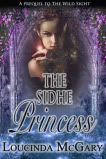
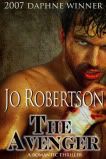
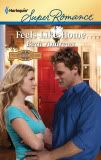
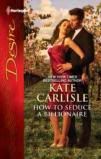

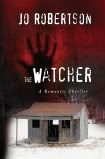


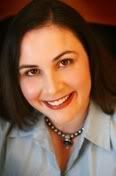











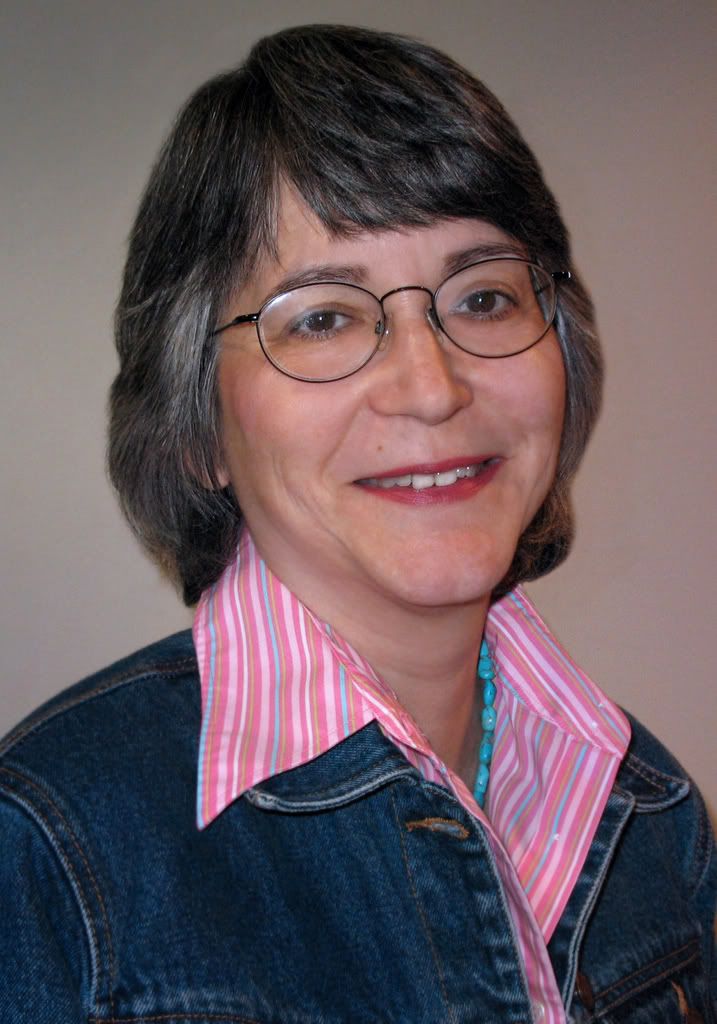




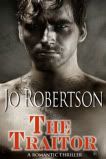




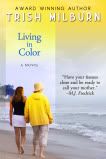
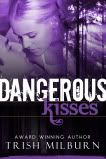









































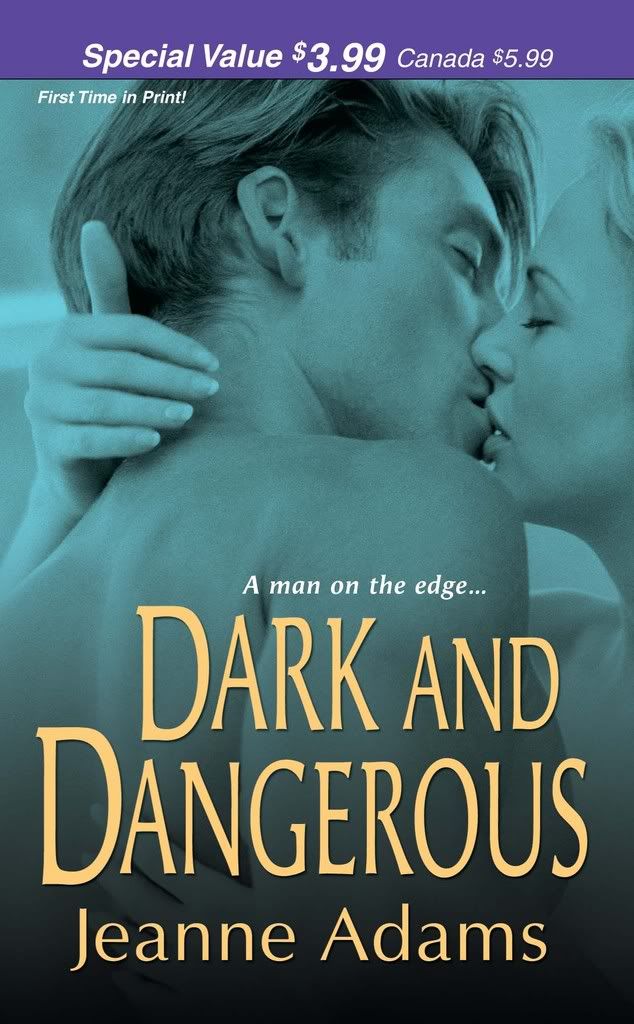



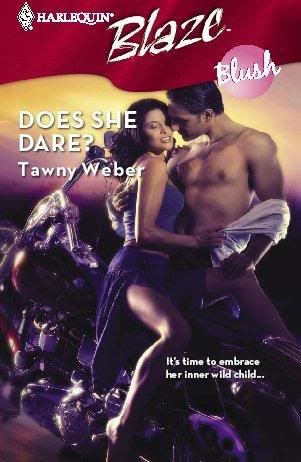





49 comments:
LOL - I think all the Australian readers are gearing up for the Romance conference leaving me to snatch the rooster.
Caroline, welcome to the lair. Your blog was fascinating. I've suspected that the few requests for revisions were more a function of overworked editors than brilliant writing (grin), and you've confirmed it. I wonder if you can share some of the common problems you encounter in a author's work in the process of editing. Thanks for sharing your expertise with us.
Congrats, Donna! I think you are right! The first time I "won" the GR (does one really win him?), the Aussies were packing for a conference.
Aloha, Caroline! Mahalo, for sharing the "behind the scenes" with us! As a reader, I am curious how an author's idea makes it onto the shelves!
Well done Donna hewas starting to miss behave so maybe it is better you have him although Barb and I are here at the Hotel in Bondi relaxing before doing dome more work Anna gets in tomorrow morning Have fun with him.
Great post Caroline I always love to hear how authors get puvblished and all the work they go thru for us readers
Have Fun
Helen
Hey, Donna, great you got the rooster!
Welcome, Caroline. I read your article with great interest. It's certainly a brave new world out there!
Welcome to the Lair, Caroline - how cool to see someone from the other side of the fence here! Hope the resident hunks have got you settled with a drink. Thanks for tempting her, KJ.
It's fascinating to hear about the changing world from the editor's perspective - much of what we writers have suspected seems to be true!
I always edit on paper too - I find I can read things more clearly and critically on paper. Especially, my own work. I find when I read on paper, I read what is written, not what I think I wrote!
Silly question, but why a blue pen?
Congrats, Donna! Enjoy the GR.
Great question. I'm also intrigued to know where most writers go wrong.
Kim in Hawaii, I believe you win him for the day...and it flies by! LOL
Hi Helen,
I love Bondi Beach. My brother lived there for four years and I was able to visit. Pure heaven!
Anna C, it amazes me how books go to print with few changes. Editing is becoming a lost art.
Anna S, I edit everything on the page as well. As much as I enjoy reading on my iPad, editing is a different experience.
Very interesting read Caroline, thanks.
I think of myself as a competent big picture writer, but sometimes struggle with some of the small detail work.
Are there any specific books or online resources/courses that you could recommend to assist me with the byzantine world of grammar...or my least favourite punctuation...comas?
Good morning everyone: Thanks for stopping by.
Donna: I see a lot of POV issues; tense issues and the inability to pull all the story threads through to the end. The "and then, and then, and then..." comes up a lot as well. I also think authors need to do due diligence about the biz and know ahead of time where they want to direct the manuscript.
Anna S: A blue pen is sort of a classic symbol for an editor...very Old School! :)
Good morning everyone: thanks for stopping by. I am having a bit of technical difficulty...and haven't had coffee yet!
this was a really fascinating glimpse into the behind-the-scenes work editors do (or don't do now, as is the case.)
I'm lucky enough to have an agent who edits, so I feel like my work hits my editor's desk in a pretty polished state. But even so, I'm grateful for the input my editor provides. It's always big picture stuff I'm too involved in the nitty gritty to see. But she's always right. :-)
rid: As a content editor, I do not focus on grammar, punctuation or copyediting issues, so I cannot recommend any books for you on this subject other than a good style manual.
I did want to also point out that manuscripts always go to copyeditors and then to page proofs regardless of the level of content editing.
Wonderful insight, Caroline, especially about the exciting future of publishing.
Thank you for bringing her to us, KJ!
Fascinating post! Thank you for sharing your insight & experience.
You said "I read with two hats on; my reader hat and my editor hat. I use my reactions on both levels to form suggestions for clients."
Could you name the top thing you look for as an editor and the top thing you read for as a reader?
Welcome to the Lair, Caroline!
And thank you for a fascinating look from an editor's perspective.
WTG on capturing the chook, Donna. I think you are right about our Oz Buddies being Busy In Bondi. ;-) Wish I could join them!
AC
Wow, Donna, it's been a while for you and the GR, hasn't it? You definitely have to catch the Aussie girls napping to snatch the prize. (Or is that booby prize?)
Fascinating look into the world of editing and the different places it may go in the future.
I always edit my work on paper, but I use a red pen. (Those five years I spent teaching high school English may be the reason!) Like, Anna S, I think it helps to see what I actually wrote rather than what I thought I wrote.
My critique group and I are always discussing the use and placement of adjectives and adverbs. Stephen King says take them all out. Someone else says leave them all in. Is this something you look for in your editing process? AND is the use of adverbs and adjectives subjectively different for different genres, i.e. are more used in historicals because of the nature of the historical style?
Great subject, KJ, thanks for inviting Caroline to the Lair today.
Yay to you, Donna. It's been a while since a Bandita got the rooster, hasn't it? I think you're right. All our aussie friends are thinking about heading out.
A question for Caroline. When you work with an author, do you prefer the completed manuscript in the best shape the author can get it?
Wendy: One of the top things I look for as a reader is the pull forward...do I want to read the next page.
Top thing I look for as an editor; do I care. There is of course, cross over on these two fronts.
Louisa: So many "ly" words!! Used to be one of my favorite comments in the margins! :) This can go both ways and yes, I do think Historicals lend themselves to adverbs and adjectives moreso than other genres. I think perhaps one is often enough but I frequently see the sentences that utilize four to say what could be said more simply.
Jo: No. I assume the manuscript is not in its most perfected form, otherwise why am I needed? I work on any stage of completion an author has...
I think your editing process is very interesting. The layers necessary to look at a work with both an eye toward the overall story line and then the syntax would be quite a challenge. Are there any genres you really don't care to read/edit?
Caroline, it was so interesting reading about your process as an editor. Thanks for sharing it!
I'm glad to hear that you work with authors to strengthen their story, not just clean up the grammar and stuff.
Still, I prefer books that are smooth reads--where you don't stumble over misused words or misplaced modifiers. Hooray that you're still there to work on all aspects of a successful book!
I just finished reading "The Sweetness at the Bottom of the Pie," and loved it as much for the elegant language as for the fun mystery.
Thanks!
Gillian: I edit most types of popular fiction except for Sci-Fi/Fantasy...I'm not a fan of the over-the-top erotic fiction either.
Saralee: there are different types of editors out there, including editors that focus solely on punctuation, etc. I am a content or developmental editor and only focus on the spelling if it stops me. I have always referred to that as "housekeeping" and I tend to suggest that authors focus on this after the broader issues have been dealt with.
Susan, so happy you have a hands on agent! I love being edited myself. If anyone wants to make my work better, I'm all for it!
Hey Heidi,
Great to see you! Hope your editing is going well!
Hi Wendy, great question. I'm also curious as to whether Caroline can read for pure enjoyment..or is that difficult because she is in editor mode?
AC, thanks for stopping by. Love your fire!
Louisa, I call myself the adverb police, and I usually go through and replace them by using stronger verbs. It does vary depending on the genre though.
Jo, great question. Before I show anyone my work, I always agonize over every detail. Caroline has the right approach. She'll help us create a better book with the raw material.
Gillian, great points. Caroline has to do both micro and macro editing.
Hey Saralee, thanks for the recommendation. I'll check out that book.
Thanks for the behind the scenes look! The world of publishing is changing so fast I think everyone's dizzy half the time. ;)
Hi Caroline - Very interesting. Since you're now working freelance, do you think you'll keep going with paper copies instead of Track changes? Do you think there's an advantage to pen and paper?
So much information here! I am fascinated by the changes in the editorial process given the advent of the Kindle. I'm sure I will have to read this again.
Thanks for such an interesting post, Caroline. I've heard the whole "editors don't edit much anymore" story many times and it's great to get your persepective on this.
Is there a common mistake you see in most of the manuscripts you edit or does it vary, depending on the writer and type of story?
K: yes, I can still read for enjoyment but once an editor...!
Most of the time I try to ignore what I see and just sit back and lap up the good book!
Alli: I get the question about common mistakes a lot...with women's fiction I see the same stuff...POV, conflict and loss of story threads...characters that are "use or lose"...and the same story premise over and over. Right now what I see the most is protagonists who knew each other back in the day in a small town, and now have come back. I think I've read 20 books in the last few months with this theme! Keeping it fresh is key!
Shannyn: I like my pen because I can move around with my manuscript. I don't own a laptop or a Kindle (eek!) and am slow to move into the 21st century! The Track changes I find SO tedious...I have to hold the mouse in a certain place, click here, click there...it is SO SLOW for me. With my blue pen, I just power through, jot down my thoughts and go!
Thank you, Caroline, for sharing your thoughts here. You're spot on with your assessments, and it's refreshing to see such honesty delivered with optimism.
I love the blue pen! I have one too :)
Thanks for the insight. I think it's fascinating to hear tales from the other side of the desk.
Maureen, thanks for stopping by! Congrats on all your success!
Shannyn, great question. I often wonder what goes through an editor's mind when he/she is reading.
Margay, so happy you found it helpful. I, too, felt there was a lot of substance to take in on the first read. It's here for you whenever you want it.
Alli, thanks for asking that question. I found Caroline's answer quite interesting--many writers give the lead characters a past so they can get together quickly!
Rhonda, I love Caroline's optimism as well, along with her willingness to get in the trenches with writers.
Hey Misty, dark side? Love it!
Jo Robertson is the winner of the critique. Congrats! Please contact Caroline as your leisure.
Thanks for the info, Caroline. I know this is something many of us wonder about as we pick up books and read them. And I can certainly understand the demands put on editors to do everything but edit. Instead they are turned into talent scouts and salespeople.
Sigh.
Using a freelance editor is sounding better and better from the simple perspective of wanting to submit the best book I can and knowing the time constraint on in house editors.
Thanks for explaining what is going on!
Thank you, Caroline, for giving us a peek into your world. Your comments were extremely helpful to those of us for whom fiction writing is virgin territory as we try to chart a course through foreign territory.
To Caroline Tolly
Madam
I am a 29 year old Masters in Political Science(57%) from India and want to do freelance writing for the New York Times. I shall be glad if you kindly help me with the procedure. Waiting for your reply.
Post a Comment